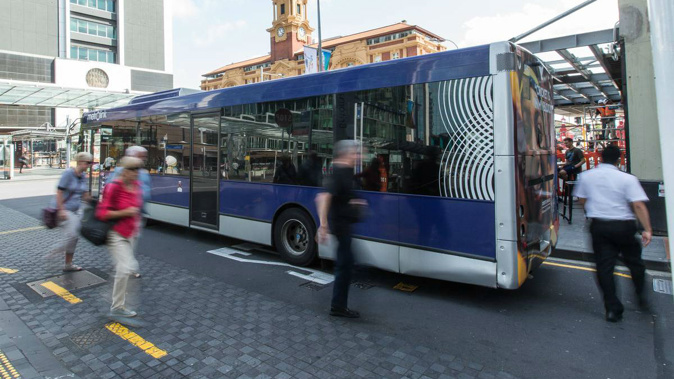
Well as of the first of July ... I think all of us around the table and all Aucklanders are going to really be tested ... Those people that are renting, they're going to find that the fuel's going to go up, everything, there's going to be a flow-on effect, everything, food, clothing, everything's just going to get so much more expensive ... People in Auckland are going to be really hit in the pocket ... people are going to be really struggling and it's people in all of our communities, middle class, everybody's going to be really struggling."
That's Cr Sharon Stewart of the Howick ward, speaking at a meeting of the Auckland Council on the decision to introduce a regional fuel tax from this Sunday.
She was right to say many people are struggling to pay their way. She was right that for many, any increase in their costs will hurt.
But was she right to say that "everything's just going to get so much more expensive"? That "everybody's going to be really struggling"?
The poorest third of all Auckland households will pay, on average, less than $2.50 more per week. That's after the council's new regional fuel tax kicks in on July 1 and the government's excise levy increase follows on October 1.
And those price rises get added to a product that does not have stable pricing to start with. The average price of 91 octane fuel yesterday, nationally, was $2.13 per litre. In Wellington and Christchurch, it was commonly selling at $2.21.
In Auckland, prices varied markedly. In Jervois Rd, Herne Bay, the BP price was $2.20. The Gull price in Kingsland was $2.09. In Henderson, BP, Mobil and Gull all had it at $2.02.
The petrol price rises caused by increased fuel taxes will add up to 15.6 cents per litre (including GST) this year. That's within the existing range of 91 octane prices.
What will wealthier people pay? On average per household, they drive more, and as the pump prices suggest, they probably pay more for their petrol too. The wealthiest third of households will face an average fuel price rise at least double that of the poorest.
That might come as a surprise to anyone used to hearing that "fuel taxes hurt the poorest more", but it shouldn't. Wealthy people spend more on almost everything.
Despite that, however, it is true that these fuel taxes will hurt low-income households more. Low-income households spend a bigger proportion of their money on essentials, including transport costs. So every price rise eats into their disposable income, assuming they even have any.
Wealthier people might not notice having to spend $5 or more a week of something. But many others have to count every penny.
Another factor: people in poorer households are more likely to use public transport, thus not paying for petrol at all. Those who do drive may be travelling further than many wealthier people, and in less fuel-efficient cars too.
I wrote earlier this week that the fuel price rises are not regressive. That was wrong. Wealthier people will pay more overall but this will impact them less. The fuel taxes are flat taxes: we all pay the same per litre. And all flat taxes are regressive, for the reasons just outlined.
On Thursday, finance minister Grant Robertson put the fuel price rises in the context of other changes the Government is making to household incomes. The minimum wage is rising. The Families Package includes a winter energy payment for the elderly and some others on benefits, a means-tested payment for babies and changes to lower-income family tax credits. All of these changes come into effect from July 1, the same day as the council's regional fuel tax.
Robertson said hundreds of thousands of families would be $75 a week better off, on average, by 2020/21 when the Working for Families measures have been fully implemented. That's far more cash in hand than the fuel taxes will take away.
That's true, but those measures also compensate for many costs facing lower-income families, especially as the Government is not introducing the tax cuts promised by the previous Government.
The big challenge now is for Auckland Transport (AT) to improve public transport quickly.
Yet while the trains are more frequent, their night and weekend services are still poor. Buses are more frequent and many routes have been changed, but not everyone is happy. Cr Josephine Bartley, who represents Otahuhu and parts of East Tamaki, told council this week she's heard from many people who say the services are now worse. She's put AT on notice.
So has transport minister Phil Twyford. AT announced last week that it has a strategic priority to shift people out of single-occupancy vehicles. Twyford told the Weekend Heraldyesterday he's keen to see their plan for how to do it.
All of which points to a hidden issue in all this: what public transport improvements will really make a difference? Should buses and trains be cheaper or more frequent? And why can't we have both? Lets argue about that.
Take your Radio, Podcasts and Music with you









